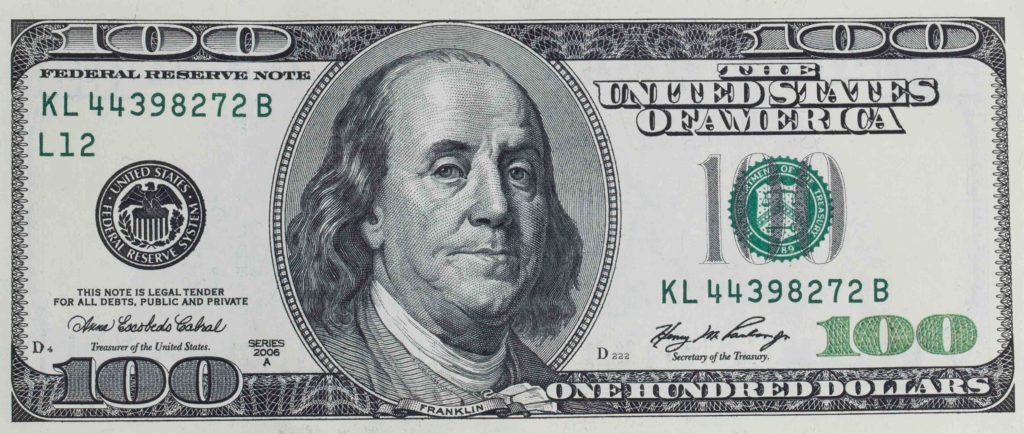Whom Do You Trust? America or Facebook?

The promise of cryptocurrencies is that we can create a widely-acceptable medium of exchange without having to trust anyone. Cryptocurrencies have no central authority, no government agency to vouch for them. We don’t need to trust a government or a bank or a stock exchange. Elites can’t cheapen our currency because no elites are involved. Indeed, no one is involved. The currency is distributed across multiple computers and multiple networks. To manipulate the currency, one would need to control all the computers in the world – a seemingly impossible task.
In the original conception, the value of a cryptocurrency is based on nothing more than supply-and demand. Value is not linked to any physical asset like gold or oil or even paper currencies like dollars. Since there is no asset behind the currency, no one can manipulate the value of the currency by manipulating the underlying asset. Rather than trusting a government or an agency or a bank, we place our trust in an algorithm distributed around the world.
(The distributed nature of cryptocurrencies also makes them quite slow. Speeding up transactions is a major challenge for blockchain researchers. The most promising solution seems to be “sharding” – a technology worth keeping an eye on.)
Traditionally, we’ve trusted governments to create and maintain the value of national currencies. That’s been a pretty good bet in the United States, less so in Venezuela. But, really, do we need a nation to create a widely acceptable currency? Cryptocurrencies suggest that the answer is “no”.
But there’s a not-so-subtle problem with cryptocurrencies. The elephant in the room is that many people (myself included) view cryptocurrencies as a new version of the Wild West – a territory populated by libertarians, wild-eyed visionaries, snake oil salesmen, drug dealers, scam artists, and terrorists. And, by the way, some person created the algorithm and could potentially manipulate it for illicit purposes. Simply put, the current cryptocurrency scene does not inspire trust.
To fill the trust gap, several “trusted” agencies have stepped forward to offer cryptocurrencies based on a trusted brand and/or on physical assets. Case in point: J.P. Morgan Chase’s “JPM Coin”. Announced earlier this year, (click here, here, and here) JPM Coin is backed by a major bank and based on a physical asset: the U.S. dollar. The company touts JPM Coin as a simpler, faster way to make and clear payments.
This past week, of course, another “trusted” organization – Facebook – announced that it will introduce a new digital currency called Libra next year. (Click here and here). Facebook wraps its announcement in humanitarian gauze – it’s simply providing an effective payment service to the world’s unbanked citizens. As Evgeny Morozov points out, however, Facebook is actually doing two things:
- Preparing to take on China’s social media giants, Tencent and Alibaba, which already combine payments and communications.
- Positioning itself as a “as a rebel force against mediocre bureaucrats and sluggish corporate incumbents”. It’s doing battle against a coalition of lazy, inept, corrupt – untrustworthy – bankers, bureaucrats, and politicians. Morozov suggests that Facebook is activating its populist supporters to keep regulators at bay. More broadly, it’s a “plan to break the global financial system.”
Could Facebook’s Libra actually become a global currency at the expense of the dollar, yen, Euro, and renminbi? Facebook currently has 2.38 billion active users. That number makes even China’s population look small. If a significant portion choose the Libra over existing currencies, then the money we know today could become irrelevant. If a nation’s currency is irrelevant, how relevant is the government?
Given all this, here’s a basic question — whom do you trust more: 1) the American government; or 2) Facebook?
(Note that JPM Coin and Libra are not truly cryptocurrencies, at least not in the original sense of the word. A cryptocurrency has three elements: 1) No central authority, agency, governing body or processor. Clearly J.P. Morgan and Facebook are centralized governing bodies. 2) No physical assets backing the currency. JPM Coin, uses the U.S dollar as its backing asset – it’s a digital currency based on a fiat currency. Facebook says that Libra will be based on physical assets, though it hasn’t quite defined them. 3) Permissionless – you don’t have to ask anyone’s permission to use a cryptocurrency. To use JPM Coin, you need to have an account at J.P. Morgan. To use Libra, you’ll need a Facebook account. Given this, it’s probably best to call JPM Coin and Libra “digital currencies” as opposed to “cryptocurrencies”.)